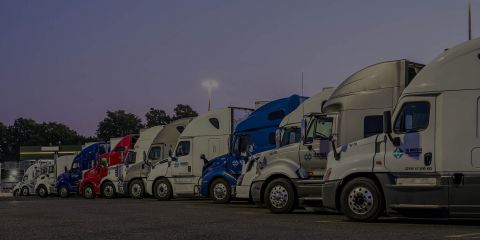
Vancouver's port is one of the most vital gateways for trade in North America, pivotal in connecting Canadian businesses to global markets. However, navigating the complexities of Vancouver's port logistics can be challenging due to its scale, diverse operations, and the dynamic nature of international trade. Whether you are an importer, exporter, or logistics provider, understanding the nuances of this bustling port is crucial for ensuring smooth and efficient operations.
Understanding Vancouver's Port Logistics
The Port of Vancouver is the largest and busiest port in Canada. Its vast infrastructure handles many cargo types, including bulk, breakbulk, containerized, and liquid goods. The port is divided into several terminals, each specializing in different types of cargo. Understanding which terminal handles your specific type of cargo is the first step in navigating the port effectively.
The Importance of Efficient Planning
Efficient planning is the cornerstone of successful port logistics. With the high volume of goods moving through Vancouver's port daily, minor delays can lead to significant disruptions. Companies must invest in robust logistics planning to ensure their goods are handled, stored, and transported with minimal delays. That includes coordinating with port authorities, shipping companies, and ground transportation providers to ensure that all aspects of the supply chain are aligned.
Navigating Customs and Regulatory Compliance
One of Vancouver's most complex port logistics is navigating the customs and regulatory landscape. Canada has stringent customs regulations, and non-compliance can result in delays, fines, and even the seizure of goods. Businesses must ensure they have all necessary documentation, including import/export permits, bills of lading, and certificates of origin. Working with customs brokers familiar with Canadian regulations can help streamline the process and avoid potential pitfalls.
The Role of Technology in Port Logistics
Technology is critical in modern port logistics, and Vancouver is no exception. From advanced tracking systems to automated cargo handling, technology helps streamline operations and improve efficiency. Companies that leverage the latest technological innovations can gain a competitive edge by reducing turnaround times and minimizing errors. For instance, real-time tracking systems allow businesses to monitor their shipments' status and quickly make informed decisions.

Managing Transportation and Distribution
Transportation and distribution are key components of port logistics. Once goods arrive at Vancouver's port, they must efficiently be transported to their destination. That involves coordinating with various transportation providers, including trucking companies, rail operators, and sometimes even air freight carriers. Understanding the most efficient transportation routes and methods is essential for minimizing costs and ensuring timely delivery.
Working with Reliable Partners
Navigating the complexities of Vancouver's port logistics can be a daunting task for any business, especially for those who are also undergoing a relocation. Therefore, to manage these challenges effectively, it’s important to partner with reliable service providers who understand the intricacies of the process. Pars Moving Services BC is one such partner businesses can rely on when moving operations within British Columbia. Specializing in complex moving logistics, this company helps businesses transition smoothly by handling the details of the move, from packing and transportation to any other specific requirements. By choosing them, businesses can focus on their core activities, leaving the challenging aspects of the move to experienced professionals who ensure everything runs efficiently and without disruption.
Handling Cargo Safely and Securely
Cargo handling is a critical aspect of port logistics, requiring careful attention to safety and security. Vancouver's port has state-of-the-art facilities and equipment to handle many cargo types. However, businesses must ensure that their cargo is properly packed, labeled, and secured to prevent damage during transit. Additionally, they should be aware of the port's safety protocols and regulations to avoid any issues during cargo handling.

Collaborating with Port Authorities
Collaboration with port authorities is essential for successfully navigating Vancouver's port logistics. The Vancouver Fraser Port Authority oversees the port's operations and works closely with businesses to ensure smooth and efficient processes. Establishing strong relationships with port officials can help businesses gain insights into the port's operations and navigate any challenges. It's also important to stay informed about changes in port regulations or policies that could impact your logistics operations.
Conclusion
Navigating the complexities of Vancouver's port logistics requires a deep understanding of the port's structure, efficient planning, regulatory compliance, and strong partnerships. By staying informed and adaptable, businesses can ensure that their goods move smoothly through this critical gateway to global trade.
Meta Description: Navigate Vancouver's port logistics with expert insights on planning, compliance, and efficient operations for smooth global trade.
Based in Vancouver, British Columbia, Canada, 18 Wheels relies on experience and integrity to make customers happy and remain on the cutting edge of shipping and logistics management.
If you have any questions about this article or you would like to talk to us about your shipping needs, please call us at (604) 439-8938.
